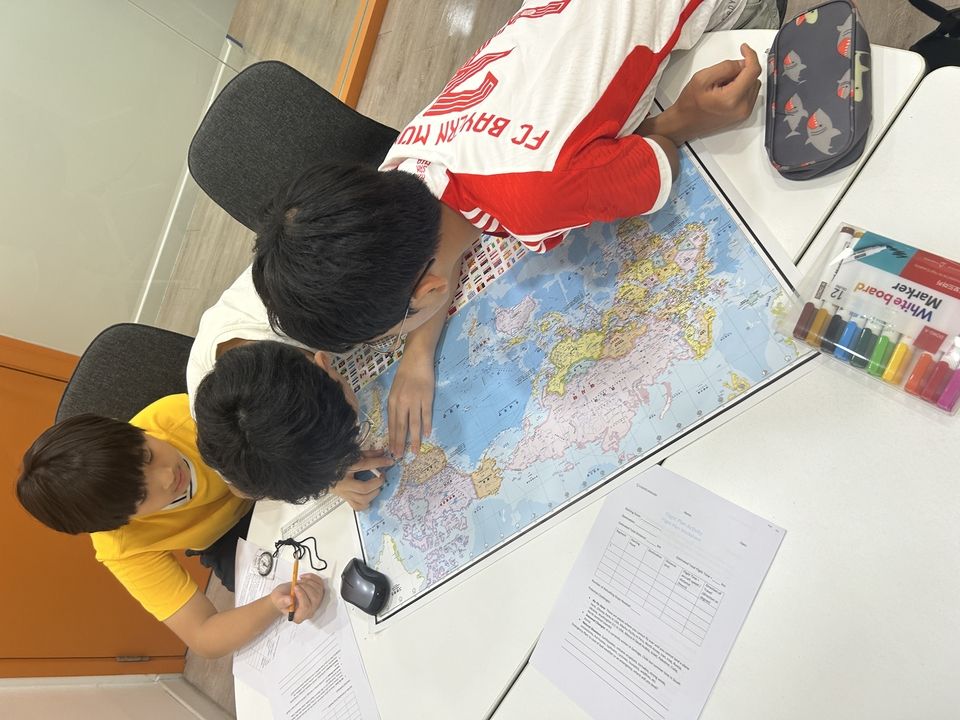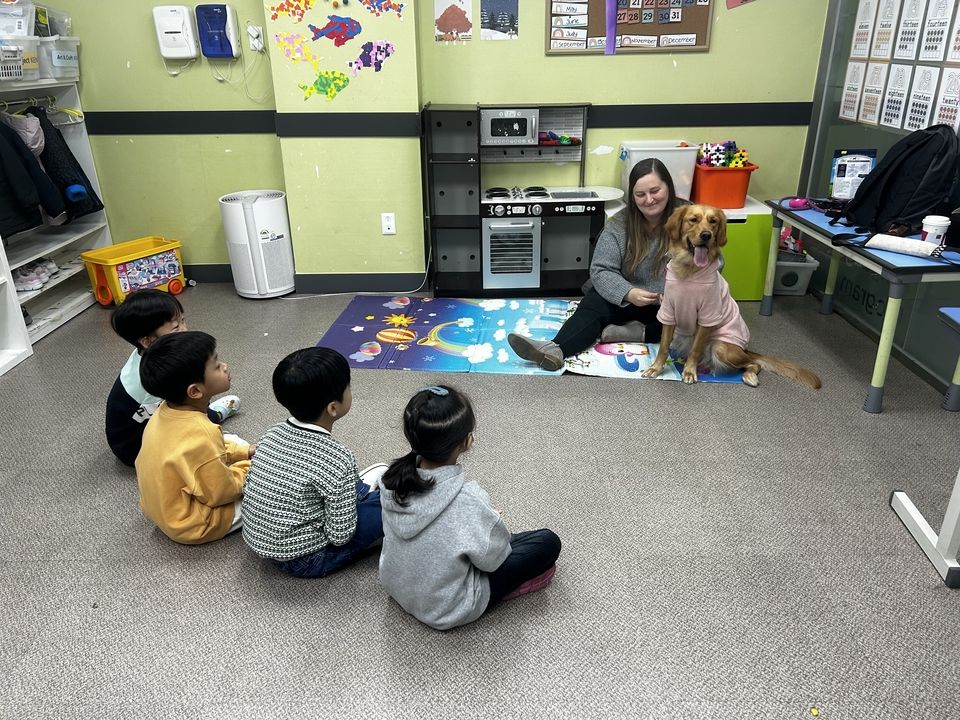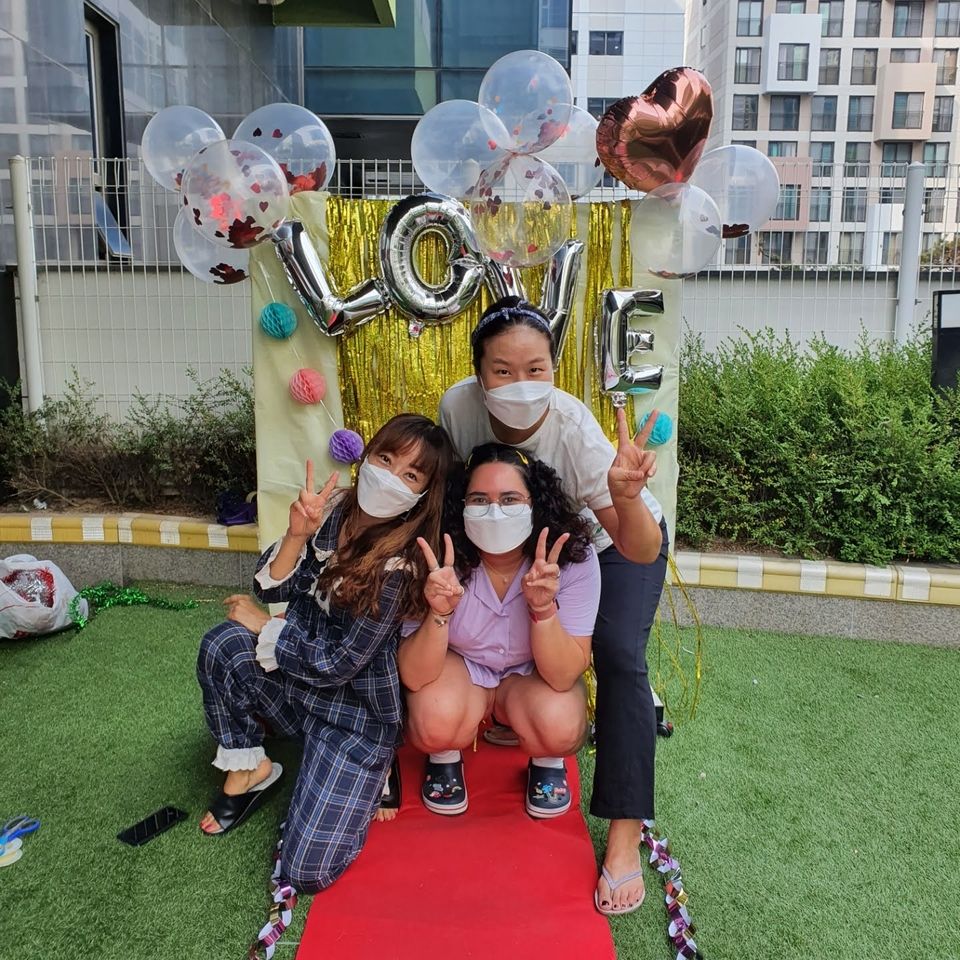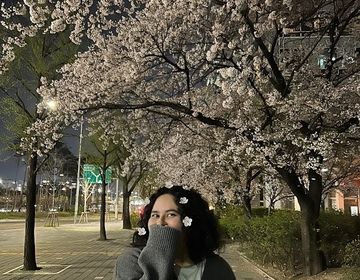Professionalism in South Korea as a Native English Teacher
As a native English teacher in South Korea, understanding Korean culture and professionalism is crucial for both personal success and the broader impact you can have on your students. South Korea presents a unique environment where expectations for both teaching and social behavior are high. Overall, professionalism in South Korea relies on understanding cultural expectations, teacher-student relationships, and workplace dynamics and hierarchy.
The Importance of Education in South Korea
Education holds immense significance in South Korean society. The country is known for its rigorous academic system and is often said to be one of the best in the world when it comes to academics. Students are expected to excel from a young age, with intense focus on subjects like mathematics, science, and English.
Given the high value placed on education, professionalism in the teaching environment is paramount. Teachers are not only responsible for teaching regular school subjects, but, also responsible for instilling values of discipline, respect, and basic manners, even more so than the students’ actual parents.

Understanding Cultural Norms in the Workplace
Like most things in South Korea, workplace behavior is heavily influenced by Confucian values, which emphasize hierarchy, respect for authority, and the importance of group harmony. As a foreign teacher, there is a bit of an expectation to sort of “fall in line” and uphold these values as well.
- Hierarchy and Respect for Authority: South Korean society values respect for elders and authority figures. In the classroom, students show respect to their teachers by addressing them with honorific titles, such as 선생님 or “seonsaengnim” (teacher). In turn, teachers are expected to maintain a position of authority while still being approachable and supportive. As a foreign teacher, this dynamic can be particularly nuanced, as students may expect you to be both a friendly, approachable figure and someone who maintains a certain level of formality. For me, I always try to keep the atmosphere in my classroom light and fun but with rules and boundaries. The most important thing to remember is to establish your position as a teacher (not friend or parent) during the first few weeks of school.
- Formality in Communication: While South Korea is a relatively modern society, its communication style in the workplace remains formal. In professional settings, direct and informal language is typically avoided, and addressing colleagues by their titles rather than their first names is the norm. You might notice your Korean co-teachers address managers, supervisors, and school directors by their titles instead of “______ Teacher” (which is usually how they will address you). While you as a foreigner aren’t expected to call your co-teachers and director by their titles in Korean, you can never go wrong with addressing them as “______ Teacher” or even more simply, “Teacher.”
Teamwork and Group Harmony: In South Korea, there is a concept of 정 or “Jeong,” which usually refers to the sense of attachment and mutual respect. This is super important in the workplace as it is not about individual success but rather the success of the group. As an English teacher, you are also expected to contribute to the school’s overall goal and mission and collaborate with other teachers and staff. Being seen as a team player and dependable helps foster respect from your Korean co-teachers and staff.
Expectations in the Classroom
As a native English teacher, professionalism in the classroom is made up of various factors. These include preparation, punctuality, communication with students, and maintaining appropriate boundaries.
- Preparation and Punctuality: The best thing you can do for your students is to show up on time and prepared. Teachers are expected to prepare lessons down to the page numbers, ensuring that the content is relevant, fun and engaging, and challenging enough for their level. While this might sound normal, you will be surprised how many teachers don’t take the time to prepare their lessons and then get stuck with bored students who are now talking and not listening.
- Being punctual is also extremely important. Arriving on time for both classes, meetings, and special event days is seen as a non-negotiable aspect of being a teacher in South Korea. Many teachers in South Korea, me included, work at private schools or hagwons, where the work hours are long and more often than not, there can be last minute changes to the schedule which can add additional pressure. However, in these situations, it is important to be flexible but maintain your schedule as much as possible.
- Classroom Etiquette: South Korean students are generally well-behaved and respectful, but maintaining classroom discipline is still an essential part of professionalism. You are expected to set clear boundaries and expectations for student behavior from day one. However, your approach should balance firmness with kindness. South Korean students tend to be shy and may need encouragement to speak up in English. A good balance of warmth, encouragement, and authority can create a comfortable yet disciplined environment.
- Humor can also be an effective tool for breaking the ice, but it should be used sparingly and appropriately. As a foreign teacher, you may unintentionally come across as too casual if you lean too heavily on humor, which can undermine the respect that students hold for you. There have been several cases in which some teachers try to be too friendly with students or even treat the older students like friends. This often backfires and ends with the students not giving the foreign teacher the same amount of respect, if any, that they give to the Korean teacher.
- Communication with Students: While South Korea’s educational system is very structured and teacher-centered, English teachers are often encouraged and expected to create interactive and engaging classrooms. Students usually get excited about learning and being in the classroom when lessons are fun and engaging and when the classroom looks and feels like an appropriate learning environment. I usually plan out my classroom decor and resources based on what we will be learning throughout the year. I typically find posters and decorations on websites like TeachersPayTeachers or Twinkl that will serve as resources for the students throughout the year. Plus, I love seeing their faces when they step into a classroom that looks like it was decorated by Dr. Seuss and Ms. Frizzle.
- It is also essential to avoid being overly critical of the students’ performance in the classroom. Many South Korean students are often sensitive to perceived failure due to the intense academic pressure they experience. Therefore, constructive feedback is important, but it should always be delivered in a positive and supportive manner. Overly harsh or public criticism could damage your rapport with students and diminish the effectiveness of your teaching.

Teacher-Student Relationships
The relationship between teachers and students in South Korea is traditionally more formal and hierarchical compared to what many native English speakers may be accustomed to. However, oftentimes, Korean students may tend to view their English teachers as a teacher and an expert on all things American, at least in my case. Building a good rapport with your class is important and will set the pace for how the rest of the year will go.
One thing to keep in mind is boundaries. It is super important to maintain healthy boundaries with students. While some teachers are more relaxed and casual with their students, you will find that your Korean co-teachers are very strict in how they set boundaries with students.
In my five years working as a teacher in Korea, I have found that for the most part kindergarteners are more ‘touchy’ than any other age group. They are very curious and often can’t resist the impulse to give you a hug, touch your hair, or cling to your legs. This never really bothered me, especially since I know I don’t look Korean and the students are mostly just curious about how I look, but I did explain that they should ask if I, or a friend, wants a hug or is okay with being touched or is okay with their things (color pencils, shoes, pictures) being touched first before doing anything. Teaching consent to smaller kids like this also helps with how they develop their own boundaries as well.
With older students (3rd grade and up), setting boundaries is extremely important with how you expect your students to behave towards you and each other. Now that I teach middle and high school gyopos (Korean kids born/raised abroad), the banter and speaking abilities are on par with students of the same age and grade level in the United States.
While it is easier to have more meaningful conversations and in-depth classroom discussions, teenagers will test your boundaries and test how far you will allow something in the classroom. I have worked with other teachers that have let lots of things slide in their classrooms because they wanted to come across like the “cool teacher” or appear to be more of a friend to their students rather than their teacher. This could raise some potential problems especially when you have to be more strict with the class or even discipline the class.
The second most important thing to remember is that building trust with students is critical to being a successful teacher in South Korea. Having an open door policy, encouraging open communication, showing interest in their progress, and being consistent with your own behavior and actions help establish a healthy learning environment in which your students will flourish.
You can also bring in cultural elements of your home country or ethnic background in order to connect more with your students or talk to them about their interests. When I was a kindergarten teacher, my students and I would talk about books, Sanrio characters, and of course, they would ask me about my favorite foods or TV shows. We would also listen to music during playtime or talk and color together. As a middle and high school teacher, my students and I are always talking about sports, Kpop, fashion, makeup, and anime. I get to ask as many questions as possible and the students get to talk about things that interest them in great detail. My high school class even has a group chat together with me where they can ask me questions about homework or English expressions in their reading.

Interactions with Colleagues and Administration
Your relationship with colleagues, especially the Korean teachers at your school, can significantly impact your experience as a teacher in South Korea. As I have mentioned before, the workplace in South Korea is influenced by Confucianism so there is a high importance on hierarchy. Usually, as a new foreign teacher, you are pretty low on the totem pole. However, maintaining professional and working together with your co-teachers will help build strong relationships and help earn the respect of your colleagues.
Collaborating with your Korean co-teachers is a big deal, especially if you are working in a public school where you are expected to create the English curriculum alongside your Korean co-teacher. Additionally, it is also your responsibility to relay any concerns you might have about students to your Korean co-teacher so that they can ensure that the students are progressing in English as well as their other subjects.
When communicating with your administration, it is really important that you are clear and concise, but of course respectful and firm. While most schools will be appreciative of their foreign staff, there can be differences in expectations or cultural norms around communication, reporting in, or receiving feedback.
However, the longer you stay at your school or if your title changes to Head Foreign Teacher, your position and rank among your colleagues changes as well and the expectations with seniority and title are different as well.

Professionalism in South Korea as a native English teacher is a multifaceted concept. It encompasses everything from understanding the cultural expectations of your role, to maintaining appropriate relationships with students and colleagues, to being prepared and punctual in the classroom. The South Korean education system places a high emphasis on discipline, respect, and collaboration, all of which play a role in fostering an environment where both students and teachers can thrive. By adapting to South Korea’s unique cultural norms and maintaining a professional demeanor, you can navigate the challenges of teaching in a foreign country and contribute positively to the education of your students.
Related Posts
A Comprehensive Budgeting Guide for English Teachers in South Korea
A Comprehensive Budgeting Guide for English Teachers in South Korea Teaching English in South Korea has become an increasingly popular option for young people looking to travel and get some... keep reading
How to Go to the Doctor in South Korea as an English Teacher: A Guide to Healthcare and Health Insurance
As an English teacher in South Korea, maintaining good health is essential while living abroad. Navigating the healthcare system can seem daunting and stressful at first, especially if you can’t... keep reading
CIEE CHINGU – A Partner Program for Teachers in Korea
Chingu ( 친구 ) is the Korean word for friend . CIEE Chingu is a partner program included in CIEE’s Teach in South Korea programs! Our goal is to connect... keep reading




